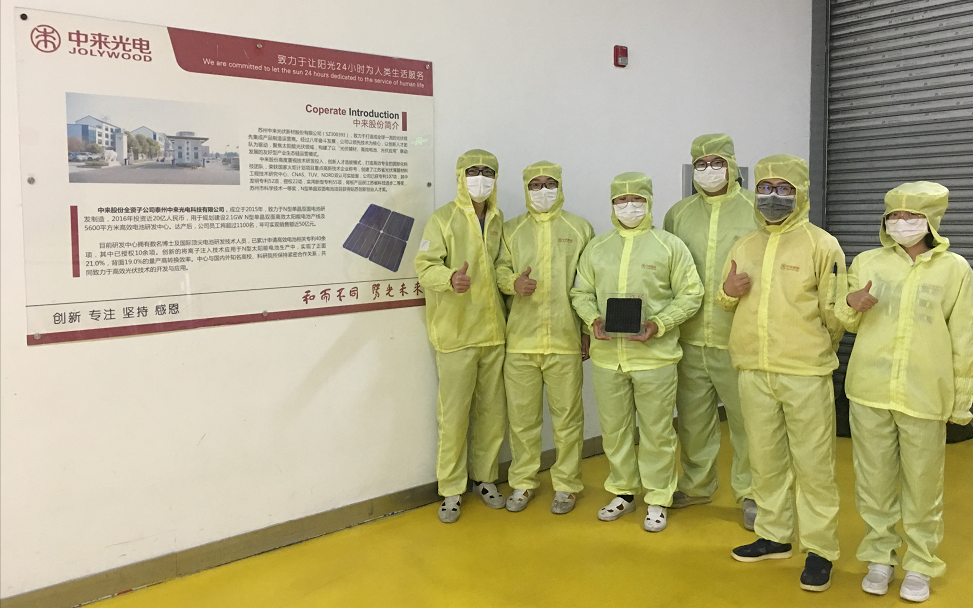Jolywood this week announced that it has pushed the efficiency of its mass-produced silicon solar cells to 23.5%.
The cells rely on n-type tunnel oxide passivated contact (TOPCon) technology, with a boron emitter and aluminum oxide/silicon nitride passivation layers. The new claim of 23.5% represents a 0.3% (absolute) improvement on the 23.2% bifacial n-PERT cell reported by Trina Solar in November 2019.
The company cited its improved metallization process, as well as optimizations to the boron emitter as the innovations behind the efficiency boost. The bifacial cell was produced on a G1 size (158.75mm) wafer. Jolywood says that the 0.3% increase in cell efficiency translates to a 3-5 W output boost at module level.
Jolywood’s previous record efficiency of 23.2% was achieved in collaboration with Belgian research institute imec in a laboratory setting, using an M2 sized wafer.
The company claims this as a record for TOPCon efficiency in mass production, while the overall record for a TOPCon cell stands at 24.58%, achieved by Trina Solar at its State Key Laboratory for PV Science and Technology, and confirmed by the Institute for Solar Energy Research in Hamelin (ISFH), Germany.
TOPCon technology has been in competition with heterojunction for the past few years to succeed PERC as the next high efficiency solar technology. Which direction the mainstream market will move in remains an open question for now. And while TOPCon itself still has questions to answer in mass production, Jolywood and others have successfully deployed the technology in projects around the world.
This content is protected by copyright and may not be reused. If you want to cooperate with us and would like to reuse some of our content, please contact: editors@pv-magazine.com.




By submitting this form you agree to pv magazine using your data for the purposes of publishing your comment.
Your personal data will only be disclosed or otherwise transmitted to third parties for the purposes of spam filtering or if this is necessary for technical maintenance of the website. Any other transfer to third parties will not take place unless this is justified on the basis of applicable data protection regulations or if pv magazine is legally obliged to do so.
You may revoke this consent at any time with effect for the future, in which case your personal data will be deleted immediately. Otherwise, your data will be deleted if pv magazine has processed your request or the purpose of data storage is fulfilled.
Further information on data privacy can be found in our Data Protection Policy.